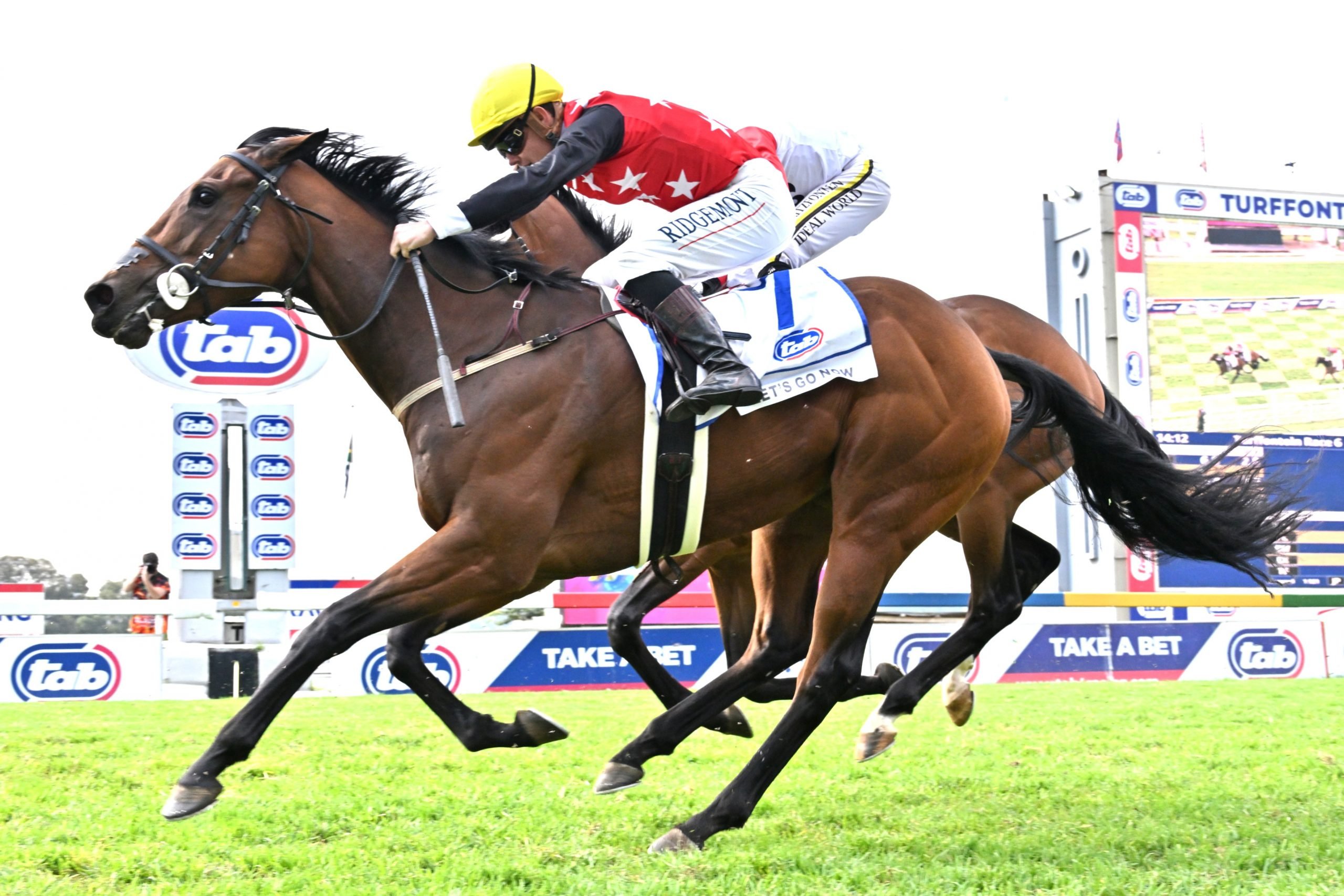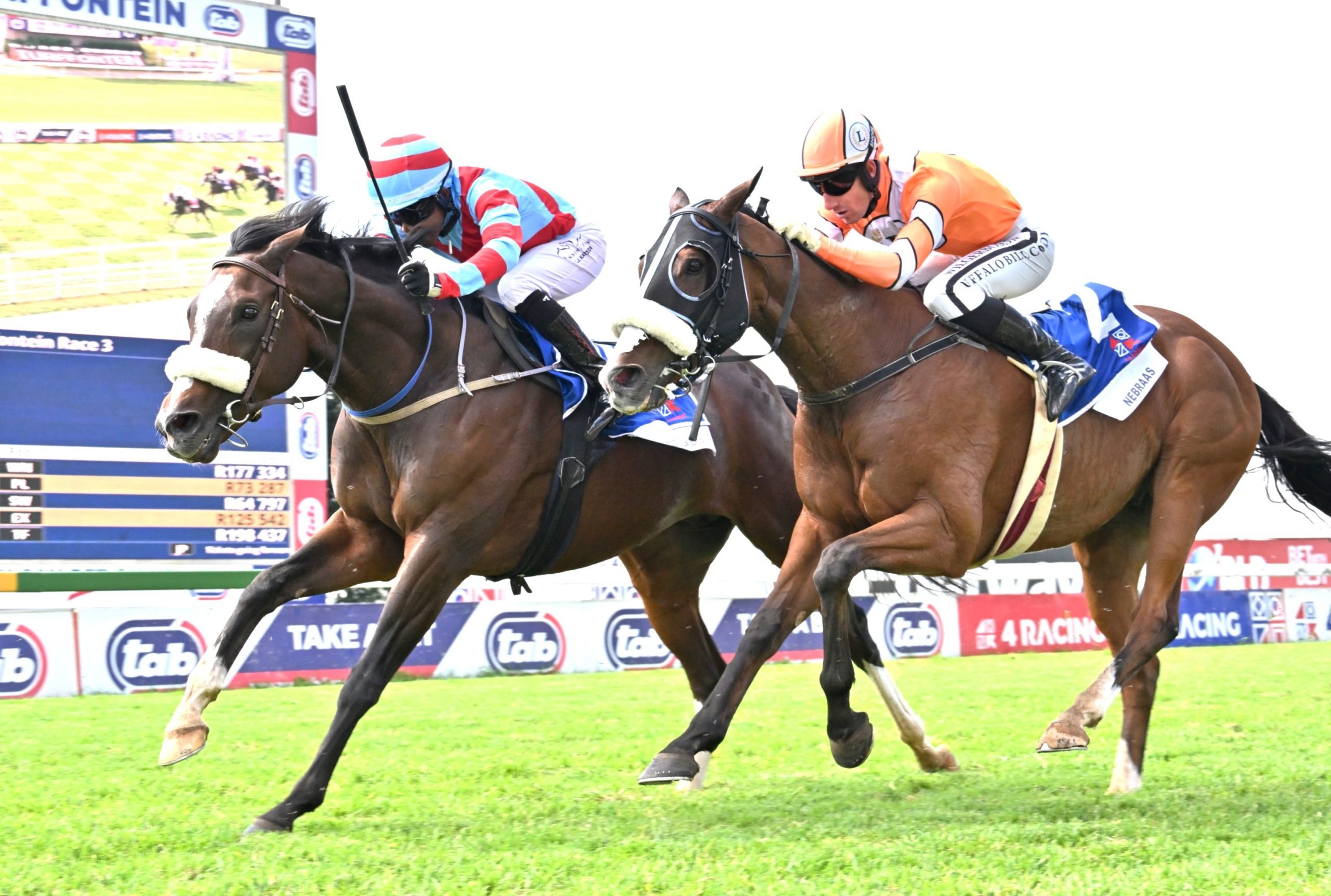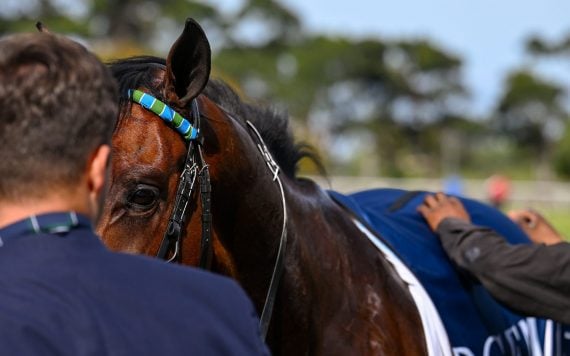Enough of the wagging tails and barking.
The genuine bite of bodies like the RA and Racing South Africa will be put to the test by the recent changes to the protocol on exports to Mauritius.
The islanders spend R35 million annually buying an average 150 horses. That is a godsend and money that is mostly reinvested back into the sport here.
If you own or train a racehorse in South Africa right now, you should be asking yourself why the sudden concern, interest, meddling and apparent sabotage of a process and viable sales outlet that has worked like a well-oiled machine for two centuries? The timing of this poisonous streak of South African shoot-in-the-foot bureaucracy could also not have come at a worse time for our good friends on the Indian Ocean Island paradise.
2012 is a big year for the Mauritius Turf Club. They celebrate their 200th anniversary this year as the third oldest Racing and Turf Club on earth. While it has an obviously natural French flavour to it, their origins are British rather than European. The club was founded by Colonel Edward Draper in June 1812. While I could not find any record of him being an inveterate gambler or anything of similar sinister leanings, Draper’s aim was apparently to reconcile the inhabitants of Isle de France with the English who had conquered the island and taken it from the French. That honourable pursuit and sincere motivation is probably the very reason that racing thrives and continues to grow on the paradise about five hours flying time via Air Mauritius, to our east.
Almost 200 years later the MTC is an internationally recognised horse racing authority and the only national horse racing operator providing permanent work to over 500 employees. The circular intimate racing facility known as the Champ de Mars is situated in the Islands’ capital city, Port Louis. It has a circular 1300m grass track, with an inside dirt track used exclusively for training. It also has the unique feature of a public road running through it, so work and training time is constrained by traffic and the demands of everyday life. Just under 40 weekly meetings are held annually between the end of March and early December and with our horses and jockeys dominating the show, the Island racing is followed with fervour by many South African enthusiasts and punters.
And while the MTC may also have bolstered the pension funds of many of our top jockeys in years gone by and provided a great reason for a paid Christmas holiday break for underworked racing administrators, it is in its role as a genuine outlet for our second-hand horses that it undoubtedly plays its most strategic and vital role. We have over the years provided the bulk of feature race winners and horses of the year, and here we think in recent times of horses like Disa Leader, The Cardinal, Have Mercy, Ritz Club(Kiwinsky), Men Of Rheims and Waves Of Winter, to mention just a few. This year only 35 horses have made their way to Mauritius with the controversial changes having been implemented, and while we are assured that racing will go ahead unhindered, the lack of new blood must undoubtedly have a knock-on effect.
In a lively and refreshingly frank interview chaired by James Goodman earlier this week on the Winning Ways show on Tellytrack (Dstv 232), former Gold Circle CEO and a shipper of Mauritian Horses for the past quarter of a century, Michel Nairac, enlightened us as to the mechanics and background of a vibrant mini industry within the framework of the sport of kings.
Nairac was accompanied by Mauritius-based Bloodstock shipping agent of thirty years standing Kevin Connoly and a relatively new kid on the block in racing terms, Candice Hobday. The latter hails from the well-known SA golfing family and described herself as a ‘professional horsewoman and owner of a livery yard’. She is apparently well respected and is known as a lady who doesn’t suffer fools.
The panel discussion centred around the recent changes introduced to the bilateral protocol that has existed without problem between ourselves and Mauritius for some time. Nairac admitted that the Mauritian business policy of restricting themselves to South Africa and an all eggs-in-one-basket approach was fundamentally flawed but after trying Australia, India, Singapore, Argentina and Europe, the real value had proven to be here in South Africa.
The State Vet’s new instructions dictate that unlike in days gone by where horses were held in unregistered isolation centres, which included the TBA in Johannesburg or Charles Koster in the Beaufort West mountains, future exports would have to be effected through the free zone in Cape Town. Nairac was at pains to point out that this move away from proven areas was nonsensical and that Beaufort West had not recorded any incidents or outbreaks. He said the restriction to the Cape would add over R6 million annually to the costs of the operation as the aircraft available were unable to do the longhaul without refuelling, amongst other implications, and that the shippers were thus obliged to charter planes.
The poser centres around the fact and question that after never having had a solitary case of AHS, the apple-cart has been upset for no apparent reason. Fair enough, the almost lackadaisical approach to the definition of approved ‘isolation centres’ is a cause of concern. Hobday advised that she had sat down with State Vet Gary Buhrmann and requested that a mandate be drawn up to cover the broad requirements of isolation. This had been done and was used as a working document when vets sanctioned clearances.
Ironically an isolation centre in Walkerville utilised by Hobday appears to have been the catalyst that triggered the stringent new requirements and mysterious interest. Despite that, one of her drafts was the final shipment of horses that had made it out. Nairac was scratching his head at a shipment of his sixteen horses that have been standing idle since Christmas Eve.
Hobday’s Walkerville yard was apparently utilised by a cross-section of commercial horses and Connoly was obviously not pleased by this deviation – questioning the sense of exposing the transient horses in this manner. Hobday retorted by asking Connoly what gave him the right to be a ‘self-proclaimed policeman’ and said that she had been thorough in ensuring compliance and a show had even be cancelled to reduce risks.
While the panel agreed on most issues, the Cape Town Free Zone is a thorny issue and they differed markedly. Hobday said: “Cape Town is great and works well. Our priority should be to ensure we get the horses out and not whose horses are going and whose pockets are being lined!”
Connoly countered this by suggesting that the Cape had regular AHS outbreaks and that the Cape Town scenario did not work.
Nairac indicated that he had more questions than answers and alluded to a sinister motive behind the move. “Why are we complicating our lives? This is just an excuse and people have got to own up and stop clutching at straws!” He closed by suggesting that the Mauritius protocol is an embarrassment and is being treated as expendable- that is, certain people have decided: let’s complicate issues and what matters if we lose it?
Evil forces at play? But what’s new in horseracing?








